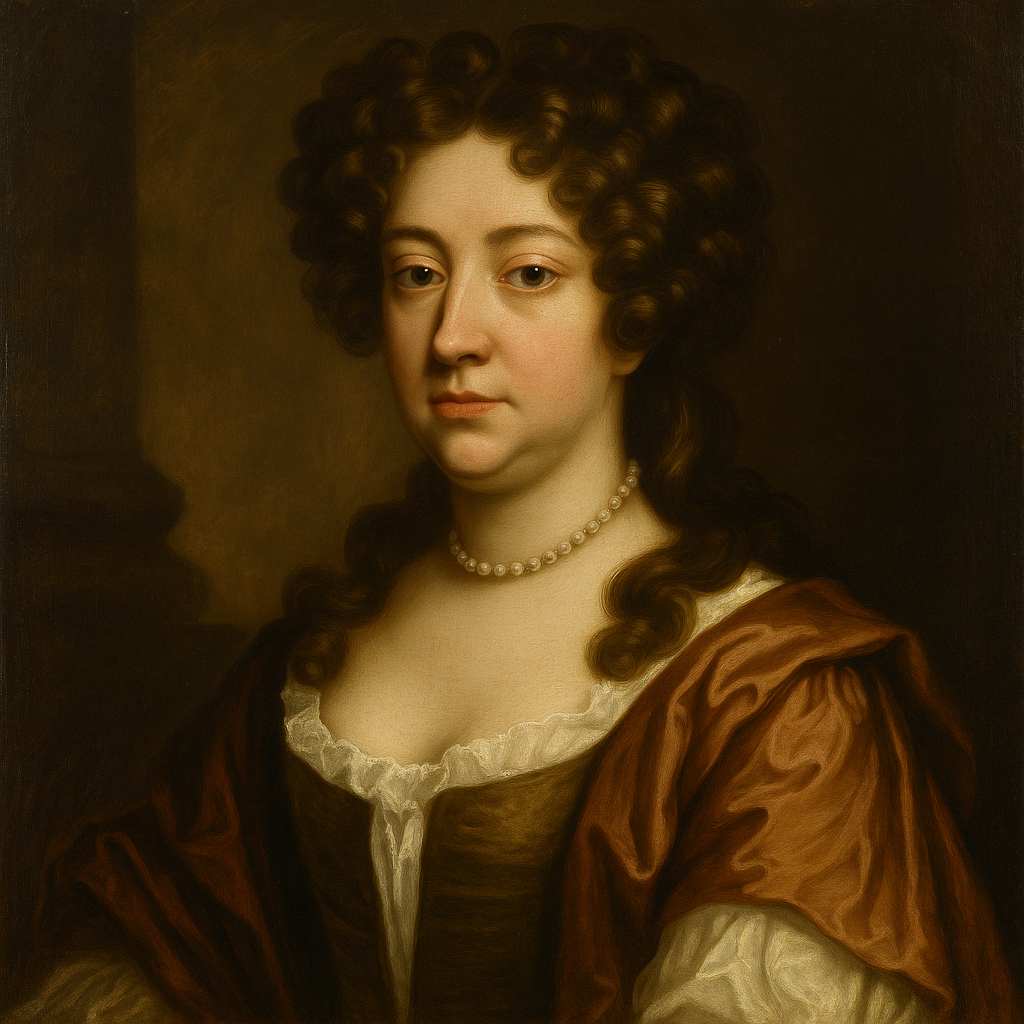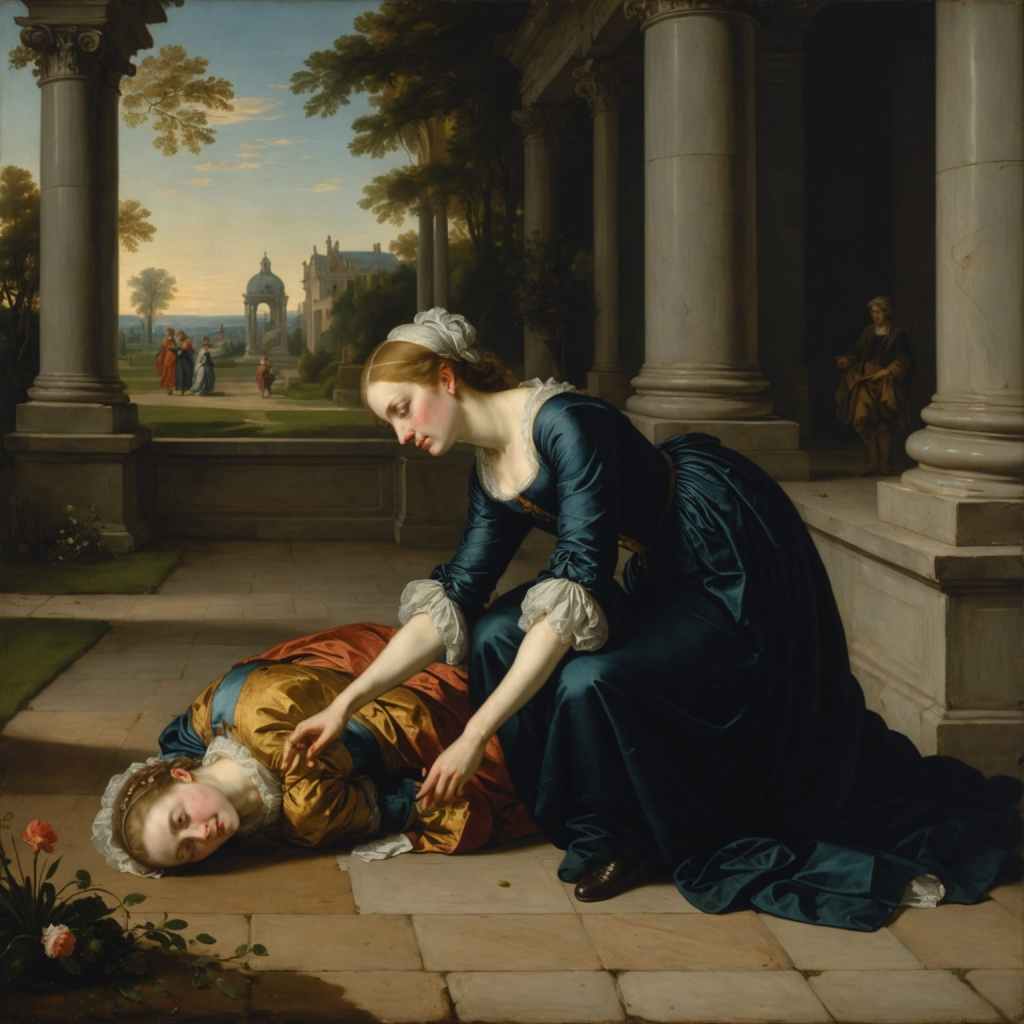6 Poems by Aphra Behn
1640 - 1689
Aphra Behn Biography
Aphra Behn, a pioneering figure in English literature, stands as one of the most remarkable and influential writers of the Restoration era. Born in 1640, likely in Wye, Kent, Behn's early life remains shrouded in mystery, with much of what we know about her childhood and youth coming from her own accounts, which some scholars consider to be embellished or fictionalized. Despite the uncertainties surrounding her origins, what is clear is that Behn emerged as a trailblazing voice in a time when female authors were a rarity.
Behn's life was as colorful and adventurous as her writing. In her youth, she may have traveled to Surinam, then an English colony, an experience that would later inspire her most famous work, "Oroonoko" (1688). This novella, often considered one of the earliest English novels, tells the tragic tale of an enslaved African prince and stands as a critical early text in the development of the novel form. It also serves as an important commentary on slavery, colonialism, and race, themes that were remarkably progressive for her time.
Upon returning to England, Behn found herself in dire financial straits. It was during this period that she began her career as a spy for King Charles II, undertaking a mission to Antwerp during the Second Anglo-Dutch War. This experience not only added to her already eventful life but also provided her with material that would later inform her writing. However, her work in espionage left her unpaid and in debt, a situation that would push her towards a career in writing.
Behn's entry into the world of professional writing was groundbreaking. She became one of the first women in England to earn a living by her pen, a feat that was both admirable and controversial in the 17th century. Her prolific career spanned various genres, including poetry, plays, and prose fiction. As a dramatist, she found considerable success on the Restoration stage, with works like "The Rover" (1677) and "The Emperor of the Moon" (1687) showcasing her wit, humor, and keen understanding of human nature.
Her poetry, too, was notable for its frank exploration of desire and sexuality. Poems like "The Disappointment" and "To the Fair Clarinda" pushed boundaries with their candid treatment of female sexual desire and same-sex attraction. This openness about sexuality, coupled with her status as a professional female writer, often made her the target of criticism and scandal. Yet, Behn remained unapologetic, using her writing as a means to challenge societal norms and expectations.
Behn's prose works, including "Love-Letters Between a Nobleman and His Sister" (1684-87), further cemented her place in literary history. This epistolary novel, based on a real-life scandal, is considered by many to be one of the first English novels. Her ability to blend fact and fiction, coupled with her insightful exploration of human psychology, set a precedent for future novelists.
Throughout her career, Behn navigated the complex political landscape of Restoration England. Her loyalist sympathies were evident in her works, yet she didn't shy away from critiquing aspects of society and politics. This political engagement, combined with her innovative approach to literature, makes her work a rich field of study for scholars interested in the intersections of politics, gender, and writing in the 17th century.
Despite her success, Behn's later years were marked by financial difficulties and ill health. She continued to write prolifically until her death in 1689, leaving behind a body of work that would influence generations of writers. She was buried in Westminster Abbey, a recognition of her significance even in her own time.
Behn's legacy extends far beyond her own era. Virginia Woolf famously wrote that "all women together ought to let flowers fall upon the tomb of Aphra Behn... for it was she who earned them the right to speak their minds." Behn's pioneering role as a professional female writer, her exploration of taboo subjects, and her innovations in form and style have made her a crucial figure in feminist literary history.
In recent decades, there has been a resurgence of interest in Behn's work. Scholars have reevaluated her contributions to literature, recognizing her not just as a female writer of historical interest, but as a major figure in the development of English literature. Her works are now studied for their literary merit, their historical significance, and their surprisingly modern treatment of issues such as gender, race, and power.
Aphra Behn's life and work continue to fascinate and inspire. Her journey from spy to playwright, from pioneering novelist to controversial poet, represents a remarkable narrative of talent, perseverance, and boundary-breaking creativity. In studying Behn, we gain insight not only into the literary and cultural landscape of Restoration England but also into the timeless struggles and triumphs of a woman determined to make her voice heard in a world that often sought to silence her. Her story remains as relevant and compelling today as it was over three centuries ago, cementing her place as a true luminary in the canon of English literature.
This text was generated by AI and is for reference only. Learn more
Username Information
No username is open
Unique usernames are free to use, but donations are always appreciated.
Quick Links
© 2024-2025 R.I.Chalmers (V2Melody).

All music on this site by R.I.Chalmers (V2Melody) is licensed under a Creative Commons Attribution-NonCommercial 4.0 International License.
Attribution Requirement:
When using this music, you must give appropriate credit by including the following statement (or equivalent) wherever the music is used or credited:
"Music by R.I.Chalmers (V2Melody) – https://v2melody.com"
Support My Work:
If you enjoy this music and would like to support future creations, donations are always welcome but never required.
Donate







